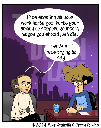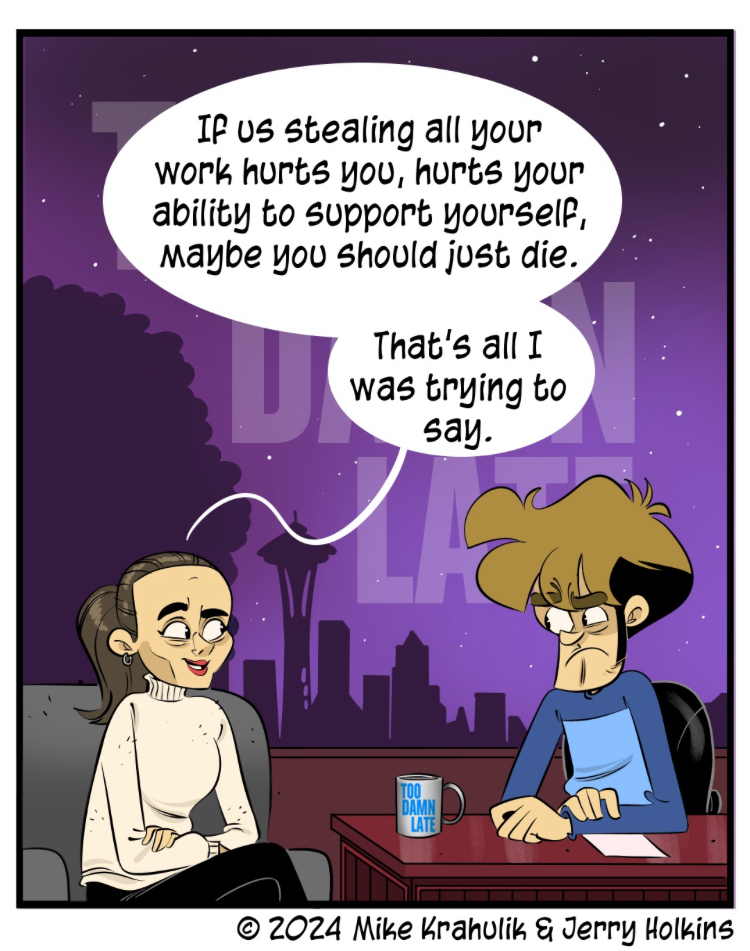I largely agree, but I will say that it isn't only about a financial safety net. AI corporations are using huge trawling nets to pull in the work of everyone in the world, and then resell it in a convenient box. The fact that the profits will be unevenly distributed is only one negative side effect. Because just like ocean trawling, the other side effect is that it will leave the ecosystem damaged and diminished.
Note that the comic in this case is Penny Arcade. Those guys are part of the first original wave of web-comics. They are pioneers and veterans. Their regular blog posts are a level-headed contemporary commentary of the state of the internet and of games. The website is amusing, but it is also a good historical document. And although their huge success is largely due to luck of their timing, and perseverance; they have used their success to make great contributions well beyond just the comics. (I'm thinking mostly of their charity "Child's play", and the various PAX gaming expos.) So that's the kind of value we risk losing, even if AI profits are shared 'fairly'.
In the comic, (and in a couple of recent blog posts), they are basically concerned that their work is being used without their permission to train AI to mimic their work, and the work of other artists. Partially this is about money, but it is also about clarity of communication. The comics, and their blog have always been a way of communicating their thoughts and chronicling history. And a flood of low-effort AI replicas can dilute this to a level of pointlessness.
And its a similar situation with all artists, with some artists being far more vulnerable than others. Artists generally are not simply drawing stuff to get paid. They are trying to communicate something about the world. So this isn't only about getting paid for art. It's about being able to contribute meaning. With AI being produced at a rate far far higher than human art, the signal-to-noise ratio will drop sharply.

